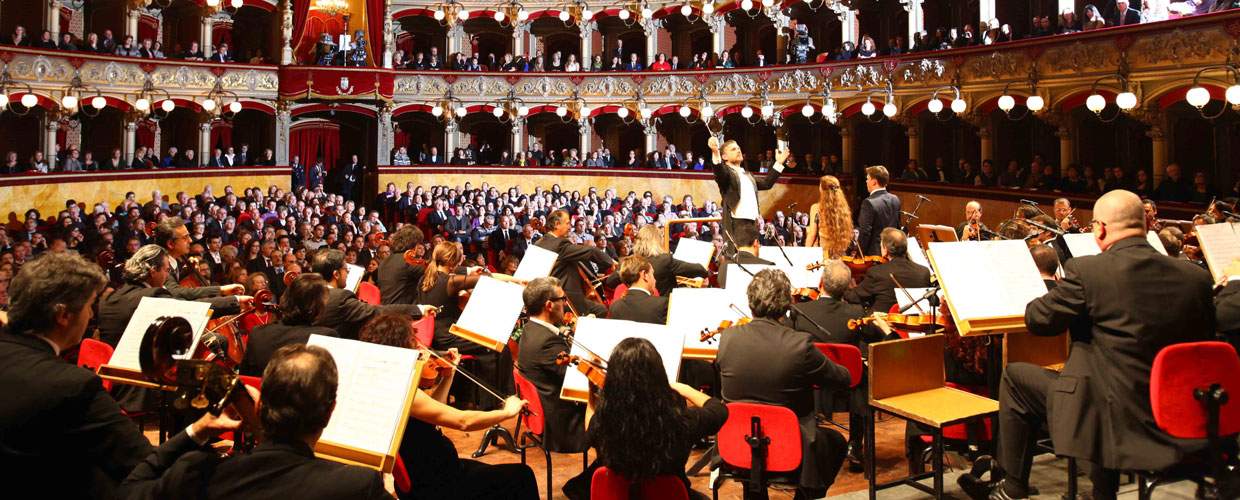New measures for culture discussed in Parliament: opera foundations, support for MiBAC and more
The process of the bill that is to convert into law, with some amendments, Decree Law 59 of June 28, 2019, on “urgent measures regarding the personnel of symphonic opera foundations, support of the film and audiovisual sector and financing of the activities of the Ministry of Cultural Heritage and Activities and for the holding of the UEFA Euro 2020 event,” is in full swing.
There are five areas on which the bill will intervene. The first (Article 1) concerns lyrical symphonic foundations: “in order to ensure the revitalization of the lyrical symphonic foundations,” reads the text as amended by the Senate and sent back to the House for the continuation of the process, the foundations themselves, traditional theaters and entities financed by the Single Fund for the Performing Arts that apply the national collective agreement “may enter into, by written deed under penalty of nullity, one or more fixed-term employment contracts for the performance dimansions of the same level and legal category, for a duration that may not exceed in total, as of July 1, 2019, without prejudice to different provisions of collective contracts, thirty-six months, including non-continuous, even as a result of successive extensions or renewals.” Compensation is provided for the worker if the term is exceeded (but the damage still does not result in conversion to a permanent contract). Rules are also changed for permanent hires, made “consistent with the needs of the foundation and subject to verification by the Board of Auditors.” In the event, until Dec. 31, 2021, if a foundation hires on a permanent basis, it will do so to the extent of 70 percent of available positions, through selective procedures. The law then commits the MiBAC and the MEF to adopt a decree containing a “model scheme, taking into account the needs of structure and organization, defined in the national collective bargaining agreement, for the artistic ensembles and the technical sector, to which each lyric symphonic foundation must conform for the formulation of a proposal for the staffing level,” to be transmitted to the two ministries within sixty days.
The second area (Article 2) concerns the performance of MiBAC services and activities: 15.4 million euros are allocated for 2019 for general services, and 19.4 for 2019 (and identical figure in 2020) for recovery and conservation of cultural property. The third area (Article 3) concerns the audiovisual sector: the composition of the Commission for the Classification of Cinematic Works is regulated and the number of experts for the evaluation of applications for access to grants for cinematographic and audiovisual works is increased. Not only that: for the concessionaire of the public radio, television and multimedia service (i.e. RAI) there is an obligation, in the time slot from 6 p.m. to 11 p.m., to reserve at least 12 percent of broadcasting time (excluding news, quizzes, sports, advertising and teleshopping) for films, documentaries, cartoons that are “of original Italian expression wherever produced.”
The fourth area (Article 4) deals with traveling shows: in particular, traveling shows are excluded from the regulations on nominative admission tickets to shows in facilities with a capacity of more than 5,000 spectators. Finally, the last article (Article 5), provides for the appointment of an extraordinary commissioner to carry out the necessary interventions to have the matches of the 2020 European Football Championship held in Rome. The commissioner will be appointed by Roma Capitale.
To follow the progress of the law and read its texts, it is possible to log on to the House website.
 |
| New measures for culture discussed in Parliament: opera foundations, support for MiBAC and more |
Warning: the translation into English of the original Italian article was created using automatic tools. We undertake to review all articles, but we do not guarantee the total absence of inaccuracies in the translation due to the program. You can find the original by clicking on the ITA button. If you find any mistake,please contact us.



























